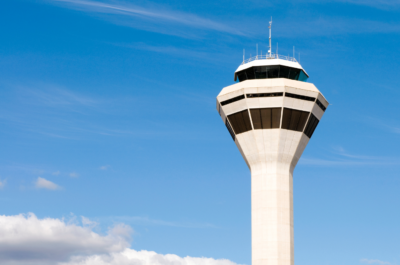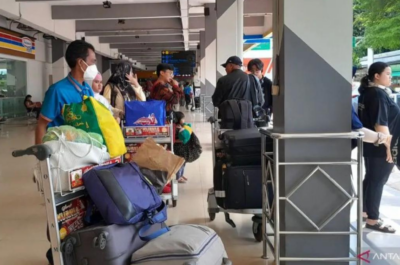At the International Society of Hospitality Consultants (ISHC) recent annual meeting, ISHC members participated in…
At the International Society of Hospitality Consultants (ISHC) recent annual meeting, ISHC members participated in small group brainstorming sessions to identify and discuss the challenges and issues that are likely to influence the global hospitality business in 2003.
While there were literally hundreds of issues discussed, the membership narrowed the list to nineteen (19) issues of great concern. In the final voting, the following ten (10) issues were identified as ones that can be expect to potentially have the greatest impact on the industry in 2003.
Brief Overview of ISHC
The International Society of Hospitality Consultants is a professional society with members in sixteen countries who are leading consultants in the hospitality industry. Membership is by invitation only. ISHC as an organization represents a one of a kind collection of experience and expertise in the hospitality industry.
ISHC members have expertise in over thirty different specialty areas in the hospitality industry including development, operations, marketing, technology, valuation, lending, human resources, asset management and legal services, among many others.
ISHC members` clients include public and private hotel owners and investors, many leading financial institutions, Fortune 500 companies, food and beverage service firms, airlines, cruise lines, time share and vacation ownership companies, universities and convention and hospitality travel and/or tourism bureaus throughout the world.
ISHC Top Ten Issues & Challenges for 2003
1. Adapting to New Business Realities – Survival in a Down Cycle
Over just a few years, the business environment facing hoteliers has changed radically, and mostly for the worse. The new realities, if not permanent, are at least likely to persist for a while and include:
- Consumer`s value mindset and sense of empowerment, contributing to real declines in average rates.
- Potential of war and additional terrorist activity, coupled with general economic uncertainty and a shorter booking cycle in all segments, rendering forecasting more of a guessing game than at any other time in recent history.
- Increased competition from non-traditional sources (cruise ships, corporate housing, timeshare).
- Potential shift to new ways of conducting business that exclude travel.
Companies that develop effective strategies for dealing with the impact of these issues, rather than hoping the issues will quickly fade away, will be the winners.
2. Distribution Channel Issues and Rampant Discounting
Traditionally, hotels have exercised strong control over the manner in which they distribute their product (i.e. sell their rooms). With the growing popularity and use of the internet as a distribution channel, absolute control over distribution and pricing has become increasingly difficult, with savvy e-mediaries grabbing market share and commoditizing the hotel buying experience. Experts anticipate that online reservations for hotels will grow from an estimated $6 billion in 2002 (up from $4.1 billion in 2001) to nearly $8 billion in 2003. The challenge is to manage this growth through an effective channel distribution strategy that addresses the impact on the customer experience, the transparent nature of pricing over multiple channels and the increasing cost of reservations delivery. Perhaps more than any other issue, the downward pressure on room rates as managed through complex and evolving distribution channels and the industry`s level of expertise in yield managing its inventory will have a dramatic impact on the profitability of hotels.
3. The Continuing Demand Crisis and Rebuilding Travel
The hospitality business has fundamentally changed at a time when we were hopeful that emerging demographics would be the industry`s salvation. Over the past two years we have witnessed an erosion of personal wealth in light of the volatility in the equities market. The baby boomers ability to travel freely and frequently has been hampered by this volatility which has eroded both consumer wealth and confidence. Compounding this negative wealth effect, the past 12 months have provided a glimpse of what may be a fundamental reshaping of travel patterns in the US and, possibly, the world. Business travel, lodging`s bread and butter, is off substantially. Group business has been particularly hard hit as companies tighten expenses, and international inbound travel has also declined. Leisure travel, an industry quick fix in 2002, will not be a long-term panacea as more hotels vie for a limited pool of customers. The focus on attracting and retaining customers must be sharper.
4. Changing Technology Paradigm
Hotel marketing and operations continue to grow more complex. Equally complex systems and communications technology has become essential to effectively manage the enterprise and the flow of critical guest and operational data. However, the current fragmented vendor market requires hotel staff to spend too much scarce time and expertise to understand, acquire, and manage this technology, while financial resources to implement and maintain it are increasingly restricted. Fewer but more comprehensive systems need to become available on a service-model (non-capital) basis from fewer but more significant vendors. Greater awareness of the relative value of the various systems would also lead to better-informed and funded investment decisions on acquiring and supporting them.
5. Airlines – The Big Upstream Problem – If your guests can`t or don`t want to get there, they can`t be your guests
Recent estimates by air transportation officials indicate that the airline industry may lose nearly $8 billion in 2002. The significance of this loss is best measured against the fact the airline industry only earns $3 to $4 billion in an exceptionally good year. Continued uncertainty in the timing and breadth global economic recovery combined with threats of war, security, and safety issues and the real (or perceived) hassle of airline travel, have collectively resulted in extremely weak passenger traffic. Add to this the rise in jet fuel prices, the cost of enhanced security measures and the bargain-hunting nature of both leisure and corporate customers, and airlines face solvency issues that have a far-reaching impact on travel, tourism, and hospitality. The hotel industry, particularly in major markets, is inextricably connected to the health of airlines. As a potential threat to the recovery of the hospitality industry, future financial performance of the major airlines remains a critical issue.
6. Human Resource Issues – Finding, Motivating, and Retaining Employees
Hospitality business leaders have long recognized the difficulty of attracting and retaining quality employees as a continuous threat to the health of the industry. The current bad situation is worsening. Labor costs are increasing as hotels compete with retailing and fast food for the unskilled and semi-skilled workers. All workers are demanding greater benefits. Labor unions appear to be regaining strength, and the tightening of immigration standards in the wake of 9/11 will place an increased burden on the industry. Highly skilled and trained workers have better earning capability in other industries. Productivity is declining as employees demand more favorable hours and the hotel business modernizes its wage and hour policies. The spirit of hospitality is deteriorating and guest service is being compromised by turnover, lack of training, corporate earnings requirements and staff reductions.
7. Development of Better Key Indicators and Analysis Tools
In light of the financial challenges that many hotels are facing, it is critical that hotels develop a better ability to monitor and analyze key performance indicators and trends to support their strategic decision-making.
Specific areas for improvement include:
- Cash Flow Forecasting – Unfortunately, very few hotels have the ability to develop accurate cash flow forecasts. In light of today`s challenging financial environment it is critical that hotels be able to develop reliable cash flow forecasts upon which to make key decisions.
- Business Mix and Revenue Analysis – Many hotels do not have adequate monitoring systems in place and/or the necessary skills to analyze business mix and revenue performance data to support strategic decision making. For example, for many hotels managing yield from the bottom up (versus top down) currently represents an opportunity to substantially improve financial performance, yet few hotels have experience and expertise managing yield on discount programs.
- Profit Contribution Analysis – All revenue dollars are not created equal. The cost of generating different types of business can vary dramatically from one or two percent for a repeat customer to 20 percent or more of revenue for a booking in response to an ad booked through a travel agent via an 800 number with frequent/honored guest points.
Other challenges include managing the tremendous amount of data that has become available through advances in technology along with potentially standardizing improved hotel investment performance barometers. As a practical matter many managers are overwhelmed with the amount of data available and, from an industry perspective, there is currently very little information available to evaluate the return on investment performance of hotels.
8. Global Explosion of Branding
Worldwide, the expansion of brands continues to change the face of the competitive environment. Eager to show earnings and market share for Wall Street, major brands compete fiercely. Using multiple brand products clustered in the same corporate structure, proprietary reservation systems and corporate programs work in tandem to drive business. Larger brand portfolios result in a decreasing value proposition for hotel owners and franchisees that experience increased costs but declining service delivery. Comparing profit potential with a brand or without a brand is becoming a serious exercise for hotel owners. At the same time, the proliferation of brands means fewer independents that struggle for fair share using price as the preferred strategy. While independent hotel operators use the Internet to level the playing field, continued downward pressure on rates results in destabilized markets and further erodes profitability.
9. Real Estate Issues
The forbearance honeymoon period between owners, lenders, managers, and franchisers is over and we may see the emergence of lenders as owners in 2003, accelerating real estate sales activity and destabilizing pricing. Operating years 2001 and 2002 were weak and there is a liquidity issue generally, and particularly in certain specific segments of the market. This cash crunch comes at a time when 1990`s refinancings are maturing, property conditions are deteriorating, occupancies and average rates are unstable or declining, the gap between buyers and sellers pricing expectations is significant, and lenders are not enamored with the sector. As such, the strategies of offensive (and defensive) capital expenditures at the asset level are off the table. Innovative structuring will again take center stage and those owners who are able to negotiate property tax reductions due to the decline in real estate value will benefit significantly.
10. Breaking Down the Barriers to Travel
Amid the turmoil that will likely be evident in 2003, several opportunities exist to attract and retain customers. The ISHC believes strongly that government needs to take a proactive role in promoting international tourism. The issues of safety and security are paramount in the minds of travelers and the travel industry. In addition to obtaining more customers and ensuring their safety, the travel business must be more customer friendly in the year to come. Like the airlines, hotels will recognize the value (via increased volume) of real hospitality, augmented by technology such as instant check-in and out that enhances value through streamlining outdated processes.
Vicky is the co-founder of TravelDailyNews Media Network where she is the Editor-in Chief. She is also responsible for the daily operation and the financial policy. She holds a Bachelor's degree in Tourism Business Administration from the Technical University of Athens and a Master in Business Administration (MBA) from the University of Wales. She has many years of both academic and industrial experience within the travel industry. She has written/edited numerous articles in various tourism magazines.











































































